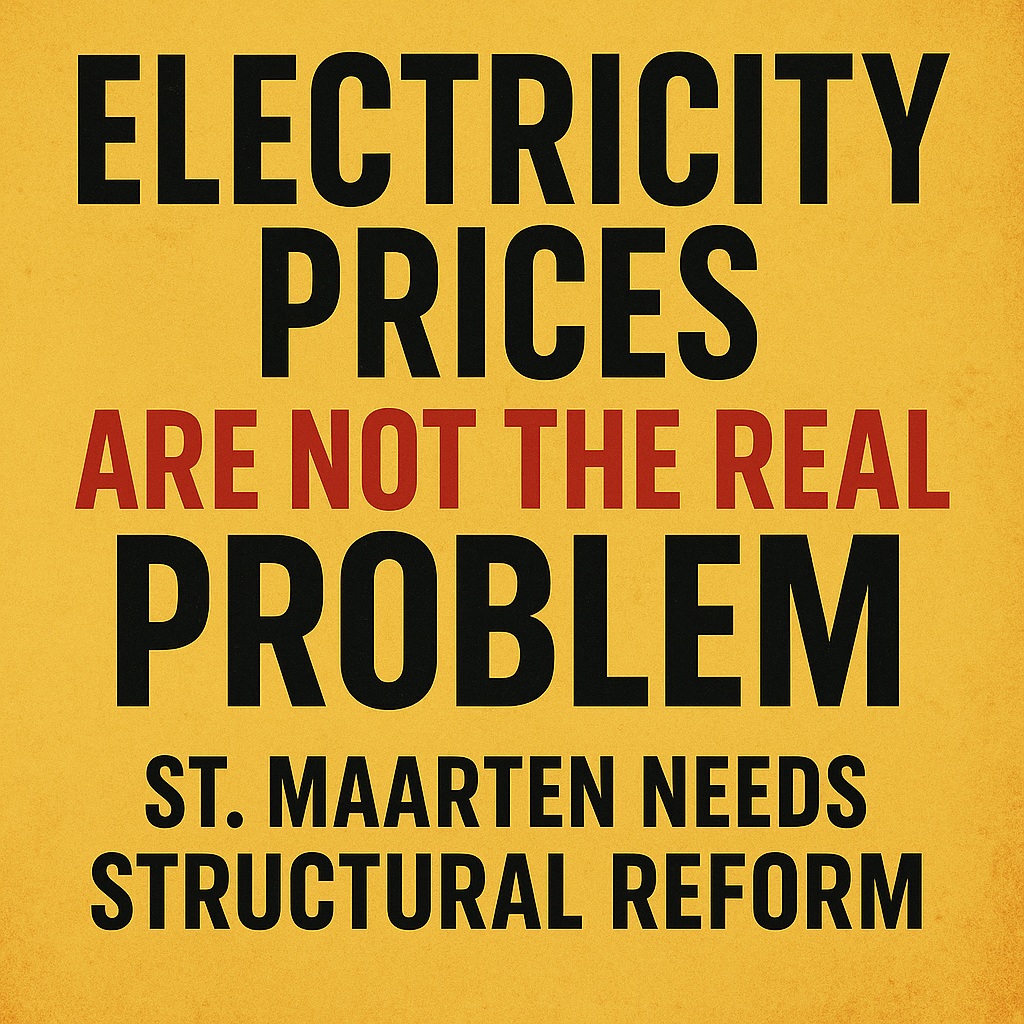![]()
Dear Editor,
The growing public pressure on NV GEBE to lower electricity prices has become a political flashpoint, drawing in even the Prime Minister. While residents’ concerns over high utility bills may be valid, the public discourse must expand beyond energy costs to address the deeper, systemic issues driving financial hardship across the island.
Focusing solely on electricity prices is not only shortsighted—it is a distraction from the broader structural deficiencies that weigh on households every day. Real relief cannot be achieved through political pressure on the utility company. What is needed is a comprehensive, long-term approach to cost-of-living challenges. So rather than scapegoating NV GEBE, the Prime Minister should be promoting energy conservation, efficiency, and responsible usage—measures that empower households to lower their own bills while preserving the financial stability of the utility provider.
Meanwhile, some of the largest household expenses—housing, transportation, and food—remain neglected from discussions.
Affordable Transportation: The Missing Link
A reliable and affordable public transportation system would be transformative. It would reduce the need for car ownership—a necessity rather than a luxury for most residents and immediately ease financial burdens. With monthly car loan payments averaging at least $350 USD, not to mention fuel, maintenance and insurance, the savings would be significant. It would also address the worsening traffic congestion. Yet, despite years of political promises, progress on public transportation remains stagnant.
The Housing Crisis: A Supply and Immigration Issue
Housing affordability continues to spiral, driven by a growing population and a chronic lack of adequate housing development. Rising rents are not simply a market anomaly; they are symptoms of an unchecked immigration policy and the absence of long-term planning. If this remains unaddressed, we will continue to see the rise of hideous apartment buildings, and shack and container settlements, accompanied by failing infrastructure, including exposed sewage and waste water in residential neighborhoods and public roads.
Environmental Degradation and Food Security
Household efforts at food self-sufficiency are being undermined. Backyard gardening, once a cultural and economic independence, is under threat due to the overpopulation of monkeys. Residents are losing their food crops of fruits and vegetables to these animals, eroding food independence and possible supplement income for many families. This growing problem demands an immediate environmental solution.
The Bigger Picture
If the Prime Minister is truly committed to easing financial pressures on households, he must widen the lens. Electricity rates are but one part of a larger, more complex equation. Meaningful reform must include:
- Comprehensive immigration policy;
- Development of public transportation infrastructure;
- Environmental management for food sustainability;
- And a clear, actionable long-term vision for national development.
Unfortunately, politicians continue to default to the familiar scapegoat—NV GEBE—because it is easier than tackling the deeply rooted issues. But if we are serious about the survival and sustainable development of St. Maarten, the time for cosmetic fixes and political theater must end. It is time to stop chasing headlines and start building a future.
Name withheld upon request

###
ADVERTISEMENT











